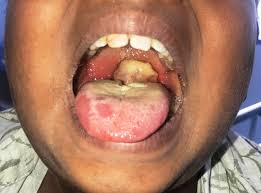As quiet rampage of ‘severe malaria’ continues to claim lives in Edo
By Emeka Nwachukwu
On the morning of Friday, June 20, 2025, residents of Ekenhuan Road, one of the most urban communities within the Benin metropolis of Edo State, were thrown into mourning following the heartbreaking news of a man who had lost two of his children in a single day.
Forty-eight-year-old Mr. Matthew Adolor, the bereaved father, tearfully recounted his ordeal before a gathered crowd of mourning neighbors, his voice breaking under the weight of unspeakable loss.
According to him, the children had returned from school three days earlier showing symptoms of fever and malaria. He promptly began administering medication, hoping for a quick recovery. However, their condition worsened. Two days later, they began coughing and developed cold and other symptoms, prompting Mr. Adolor to rush them to the hospital. Tragically, both children died from complications linked to ‘severe malaria’.
The following day, Saturday, June 21, 2025, residents were once again thrown into mourning as news broke of the deaths of the wives of two illustrious young men from the same area. The women, said to be in their late 30s and early 40s, were said to have passed away after a ‘brief illness.’ One of them, reportedly, was the daughter of a successful and popular businessman from the State.
A day before this tragic incident, two other residents in the same area, reportedly passed away. One was a plumber who collapsed and died while on duty, and the other a woman who died just two days after being diagnosed with ‘severe malaria’.
Just a week prior, a teacher at a well-known Catholic primary school in the area also reportedly died after a brief battle with the same ‘severe malaria’.
So far, at least ten people in this axis are said to have died under similar circumstances. Several others were discovered to have narrowly escaped death after being revived with oxygen in hospital emergency wards. Many more findings reveal are still battling for survival, suffering from intense symptoms, including hallucinations brought on by what appears to be a deadly new strain of malaria.
Though the names of the persons mention in this write up were altered to protect the identities of the victims, the events are painfully real. It is the grim reality of what appears to be a quiet rampage of the ‘severe malaria’, allegedly believed to be an outbreak of diphtheria in Edo State. Residents say the ‘sickness’ has continued to claim lives of several residents in the State.
Disturbingly, the situation is not limited to the city centre. In rural communities, where access to healthcare is even more limited, the impact is likely to be far worse. Several lives are believed to be quietly lost daily to this killer disease.
However, as of today, only two deaths of diphtheria have been officially reported and confirmed across the State
In a widely circulated video on social media, a medical professional at the University of Benin Teaching Hospital (UBTH) described the heartbreaking state of healthcare in Edo State, revealing how several patients are laying unconscious on the floor with no beds or medical attention available amid the alarming spread of the ‘severe malaria’.
His story was a chilling reminder of how overstretched the state’s only major tertiary care center has become.
Rising from the ashes of the COVID-19 pandemic, the previous administration in Edo State built a strong and responsive public health infrastructure, anchored on a robust primary healthcare delivery system. This included the establishment of a robust emergency medical response system (EMS), the strengthening of the state’s Primary Healthcare Agency, extensive training of community health workers, and the development of numerous primary healthcare centers across local communities. The plan was to ensure at least one well-equipped primary healthcare center in every ward, bringing quality healthcare closer to the people.
These interventions which evolved from the lessons of the pandemic, matured into a solid, decentralized healthcare structure that became the pride of the State. The goal was to create a stable and responsive system with seamless referrals from primary to secondary, and when necessary, tertiary care.
In this model, primary healthcare was the first point of contact, handling most cases before escalating more complex conditions to secondary facilities, and ultimately, to tertiary institutions for specialized treatment.
The current administration of Monday Okpebholo seems to have neglected as many of the primary healthcare interventions are said to have been either abandoned or crashed.
For instance, the Oredo Primary Healthcare Centre, which was recently upgraded to a world-class facility, was converted into a general hospital.
This is part of the reasons that the University of Benin Teaching Hospital (UBTH), which is meant to provide specialized, tertiary care, is overstretched and overwhelmed, as posted in the viral video.
Experts Speak
Some healthcare experts, who spoke on condition of anonymity, stated that the ongoing public health crisis is a direct result of the dislodgement of Edo State’s once globally recognised healthcare response structure.
“What we’re witnessing now is the fallout of dismantling a structure that was working. The previous framework was recognised globally for its responsiveness and coordination. That has been completely eroded,” said a health practitioner who operates within Benin City.
Another expert pointed to the consequences of neglecting the foundation of the healthcare system, noting, “Primary healthcare is supposed to be the bedrock. Once you weaken that layer, everything else collapses. That’s why UBTH, which should focus on specialist care, is now overwhelmed with basic cases.”
He added, “The current crisis isn’t just about diphtheria but about the failure of leadership to preserve and strengthen a proven and functional system put in place by the previous government. These deaths across the state are needless and entirely preventable.”








